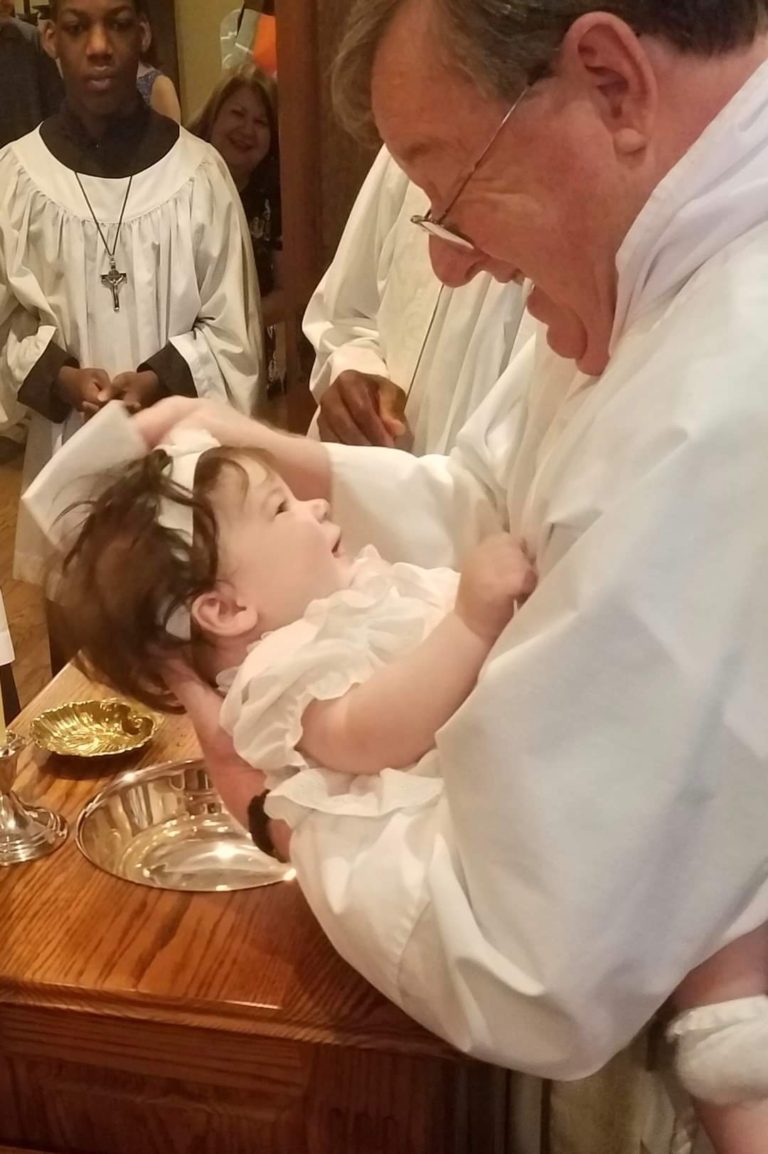How does Holy Matrimony differ from other kinds of ‘marriage?’Marriage is most definitely a sacrament, instituted by God in creation and blessed by Our Lord Jesus Christ, raised and elevated to the status of a sacrament by His blessing and teaching. Actually, marriage exists in nature as the holy estate into which man and woman were intended to enter for life. ‘So God created man in his own image…male and female he made him’. ‘Therefore a man leaves his father and his mother and cleaves to his wife, and they become one flesh.’ (Genesis 1.27, 2.24). Man and woman were made to be together in a natural state of marriage. However, Our Lord blessed Marriage by His presence at the wedding in Cana-in-Galilee (St John 2), and raised the natural estate to a sacrament of grace. ‘This Mystery (sacrament) is a profound one, and I am saying it refers to Christ and the Church (Ephesians 5.32). Please read the entire 5th chapter of Ephesians. In the Christian Faith, Marriage is a sacrament representing the union of Christ and His Church, the Bride of Christ. Matrimony is a sacramental union or bond, which, like the union between Christ and His Church, is indestructible and indissoluble– it can never be destroyed once validly covenanted or contracted until one of the two spouses dies.
Our Lord elevated Marriage to a Sign of the unity between Himself and His People in the covenant and communion of the Church. In the Christian Sacrament of Marriage, which is different from non-Christian marriage because it is sacramental, the bride and the bridegroom are the ministers— they, by their totally free and self-giving vow each to the other, establish this holy union and ordinance for each other, and administer the Sacrament to each other. As the Church’s representative, the priest witnesses and blesses the Marriage, giving the witness and blessing of the Catholic Church. Christian Marriage is permanent as long as both parties live: ’till death us do part.’ It establishes between the husband and wife a life-long and unerasable bond and union, and a sacramental state of life. God pours His grace into the union to strengthen it, to give to the couple the grace to be faithful to the vows made one to the another. ‘I will.’ The parties in Christian Marriage vow before God and each other that they will remain faithful to one another for life, and will continue to renew and choose the vow made daily until life’s end. The vow is an ongoing commitment and choice made, not once, but for the rest of one’s life.
Because man and wife administer this sacrament to each other, each must make a free and willing choice to marry the other person. Anything that would prohibit or impede a free and completely voluntary, informed, and knowledgeable consent to the Marriage by one of the parties would cause the sacrament to be invalid – not a true Christian Marriage. For a Christian Marriage to be a true marriage, a sacramental union, both parties must believe that Marriage is absolutely life-long, an indissoluble, indestructible, permanent union, a sacramental bond, before God and man for life, established for the mutual comfort and salvation of one another, for the procreation and nurture of children when possible, for the avoidance of sin, and for the good of the Church and human society. If one of the persons does not believe this, then the Marriage cannot be a valid sacrament and does not communicate the grace promised by Christ in the marital union.
If there exists in one of the persons disbelief of the Church’s faith concerning Marriage or a state which is contrary to the requirements of true marriage— these are called impediments, stumbling-blocks which prevent the free, informed, and true consent of both parties to the Sacrament and nullify its grace from the beginning, ab initio. There are actually many potential impediments to Christian Marriage: lack of valid baptism in one of the parties, the intention not to have children, force, coercion, immaturity, insanity, the lack of intention to marry for life, undisclosed social disease, homosexual behavior, withheld information which might affect the choice — anything which prevents a mature, logical, intelligent, free, willing, voluntary choice. If any of these impediments are present at the beginning of a marriage, the Church can later declare after investigation an annulment, an official statement affirming that the marriage was never truly a Christian sacramental Marriage, Holy Matrimony. The Church has the authority to determine that such a union is null and void, and thus not a sacrament.
In the case in which the Church declares nullity, the parties, having obtained a civil divorce, possess the ability to marry again in the Church in order to contract a genuine, real sacramental Marriage, provided they profess the Church’s teaching on Marriage and observe the law of the Church. However, if the Church determines that a previous Marriage is sacramental, she cannot bless and witness another purported marriage which either party may attempt to contract with another partner, even if the persons in question have obtained a civil divorce. The Sacrament of Matrimony is a life-long and indissoluble bond— the Church does not recognize civil divorce as dissolving the sacramentality of Marriage. Civil divorce only dissolves the legal, not the spiritual, relationship. Only by a declaration of annulment from a bishop, which demonstrates that a first marriage never existed sacramentally, can a Catholic Christian seek a new spouse.
Christian Marriage imparts sacramental grace; non-sacramental marriages, whether 1. non-Christian or 2. second marriages contracted after civil divorce without the Church’s authorization, cannot be guaranteed to impart the grace of the Christian Sacrament of Matrimony. Many marriages today, most especially many of those in the latter category, are contrary to God’s will and commandments and are therefore sinful.
The Church, of course, does countenance physical separation between husbands and wives who are validly married if there is a serious problem in the union, such as domestic violence. However, if the Marriage is a sacramental union, even such circumstances cannot eliminate its sacramental nature. Please read St Mark 10.1-12: ‘Those whom God hath joined together let no man put asunder.’
The outward and visible sign of Matrimony is the making of vows by one woman and one man to each other, to live together in this sacramental bond for life, according to the purposes for which God instituted it, with the exchange of rings and joining of hands as a symbol of their union.
The inward and spiritual grace of Marriage is the union of man and woman, to be one flesh, that each may contribute to the salvation and health of the other, and by the fruit and love of their union to bring forth children in the faith and nurture of God, if it is His will. The grace of this sacrament enables the spouses to love one another as Christ loves the Church; it perfects the love of the spouses toward one another and their children, strengthens their indissoluble union, makes them holy in each other that they may have eternal life. The grace of Marriage is mystical participation in the Life of the Holy Trinity, Who is Himself a Communion of Persons united in love. Marriage reproduces in the love of husband, wife, and children the self-donating and mutual love of the Three Persons of the One Trinity, the God Who is Love. The grace of Matrimony reproduces the mystical communion shared between Christ and His Church. This special grace is given for the good of the couple, the good of their children, and for the good of human society. Marriage is the ‘Domestic Church,’ where the love and grace of Christ enter most deeply in the human family and builds up the Christian family as the heart of the Church and of human civilization.
 Is Christian Marriage a Sacrament?
Is Christian Marriage a Sacrament? 
 Is Christian Marriage a Sacrament?
Is Christian Marriage a Sacrament? 



